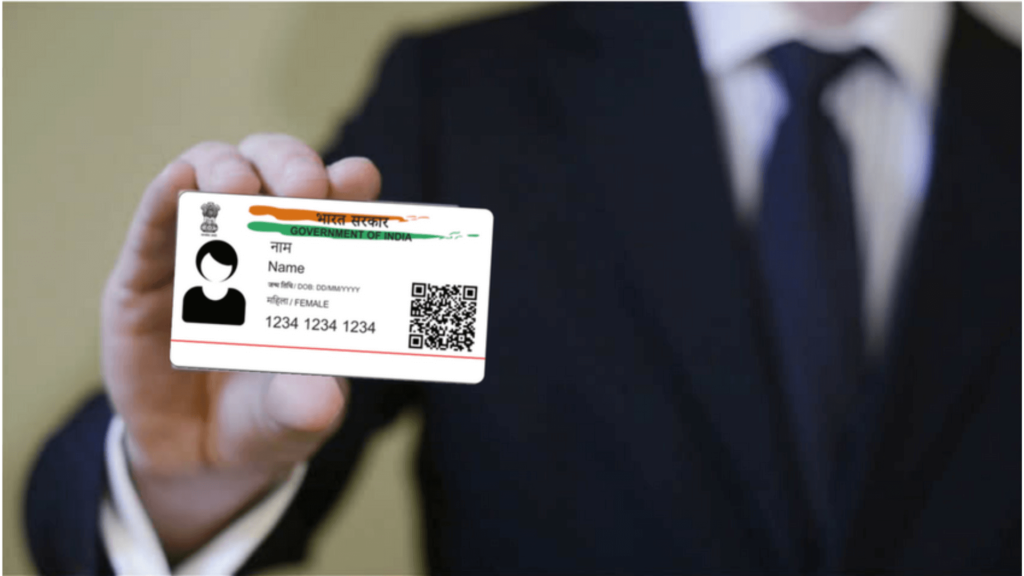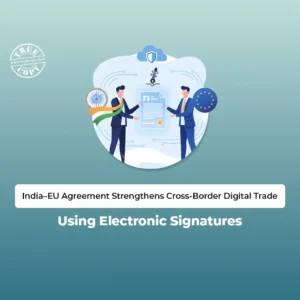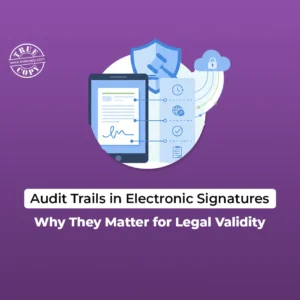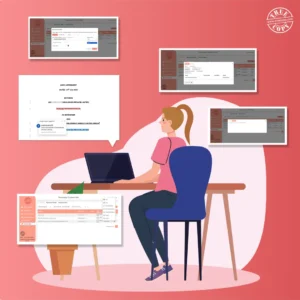Secure and effective signing techniques are crucial for individuals and businesses in the quickly changing digital world. Electronic signatures in India are made possible by two well-known technologies: Aadhaar eSign and Digital Signature Certificate (DSC) Token. Although both techniques guarantee the integrity and authenticity of digital documents, they function differently and fulfill different purposes. We will examine the features, distinctions, and applications of Aadhaar eSign and DSC Token in detail to assist you in selecting the best option for your needs.
What is an Aadhaar-Based eSign?

With Aadhaar eSign in India, users can electronically sign documents online by providing their Aadhaar number, one-time password (OTP), or biometric authentication. This approach guarantees a quick, paperless, and safe online document signing process using Aadhaar-based eSign technology. Due to its simplicity and ease of use, Aadhaar eSign has become very popular in India, especially for people needing access to a Digital Signature Certificate (DSC).
With legal recognition granted by the Information Technology Act of 2000, Aadhaar-based eSign technology is a reliable and legitimate way to sign digital documents. By using their Aadhaar number, which is connected to their biometric information, users can verify their identity and guarantee that their signature is safe and enforceable by law.
What is DSC Token Signing?

Token signing with a Digital Signature Certificate (DSC) is another popular way to generate electronic signatures. A DSC is a digital key that certifies the certificate holder’s identity and is issued by certifying authorities (CAs). Usually, DSC tokens are kept on a USB token for a digital signature token, which must be plugged into a computer to sign documents.
Because the private key used for signing never leaves the token, DSC Token Signing offers higher security. This guarantees the digital signature’s high level of security and authenticity. DSC tokens are frequently used when a greater degree of security and trust is needed, like in government transactions, legal documents, and financial agreements.
What’s the Difference Between DSC Token Signing and Aadhaar eSign?
Although creating digital signatures is the primary function shared by Aadhaar eSign and DSC Token Signing, their functionalities and intended applications diverge greatly.
- Authentication Method:
- Aadhaar eSign: Users authenticate their identities using their Aadhaar number, biometric verification, or an OTP sent to their registered mobile number.
- DSC Token Signing: Users authenticate themselves by connecting a DSC token—typically a USB token for digital signatures—to their computer. The private key kept on the token is used to create the digital signature.
- Accessibility:
- Aadhaar eSign: Easily accessible to any individual with an Aadhaar number and registered mobile number.
- DSC Token Signing: A DSC token is required, which is typically issued by certifying authorities and must be renewed periodically.
- Security:
- Aadhaar eSign: Secure and legally binding, but relies on the security of the Aadhaar ecosystem and the OTP or biometric used for authentication.
- DSC Token Signing offers higher security, as the private key never leaves the token, making it less susceptible to online threats.
- Use Case Flexibility:
- Aadhaar eSign: Ideal for quick, everyday document signing where convenience is key.
- DSC Token Signing: Best suited for high-security scenarios where document integrity and authenticity are paramount.
Features of Aadhaar eSign and DSC Token
Both Aadhaar eSign and DSC Token have distinct features that cater to different needs.
Aadhaar eSign:
- Ease of Use: Signing documents is straightforward, requiring only an Aadhaar number and OTP/biometric verification.
- No Hardware Requirement: Since the signing process is entirely online, there’s no need for a physical token or device.
- Legally Compliant: Recognized under the IT Act, it is a valid method for signing digital documents in India.
DSC Token:
- High Security: The private key is stored on a hardware token, ensuring it cannot be accessed or misused by unauthorized parties.
- Offline Signing: DSC tokens can be used to sign documents offline, making them ideal for secure environments with limited internet access.
- Multiple Usage: A single DSC token can be used across various platforms and for different types of documents, offering flexibility for professionals.
Use Cases of Aadhaar eSign and DSC Token
Aadhaar eSign:
- Personal Documents: Quick and easy signing of individual documents, such as agreements, contracts, and consent forms.
- Small Businesses: Ideal for small businesses requiring frequent signing of documents without high-security tokens.
- Government Services: Widely used for e-Governance services where Aadhaar-based authentication is required.
DSC Token:
- Legal Documents are essential for signing high-value contracts, legal agreements, and other sensitive documents where maximum security is required.
- Financial Transactions: Used in banking and financial institutions for signing checks, loan agreements, and other financial documents.
- Government and Corporate Use: Commonly used in government tenders, corporate filings, and other high-security applications.
Summing up
In digital signatures, Aadhaar eSign and DSC Token Signing are formidable instruments that address distinct requirements and scenarios. For individuals seeking a reasonable, convenient, and legally compliant online document signing solution, Aadhaar eSign is ideal. On the other hand, when document integrity is crucial, DSC Token Signing provides an even higher level of security.
Both techniques provide quick and easy means of document signing and authentication and are essential to India’s digital revolution. Whether you decide to use DSC Token Signing or Aadhaar eSign will depend on your particular requirements, the required level of security, and the kind of documents you are working with.
With TRUESigner ONE, you can sign, verify, and manage your documents securely in no time at all. This all-in-one platform streamlines digital signatures and is ideal for individuals seeking a comprehensive solution combining both technologies.



